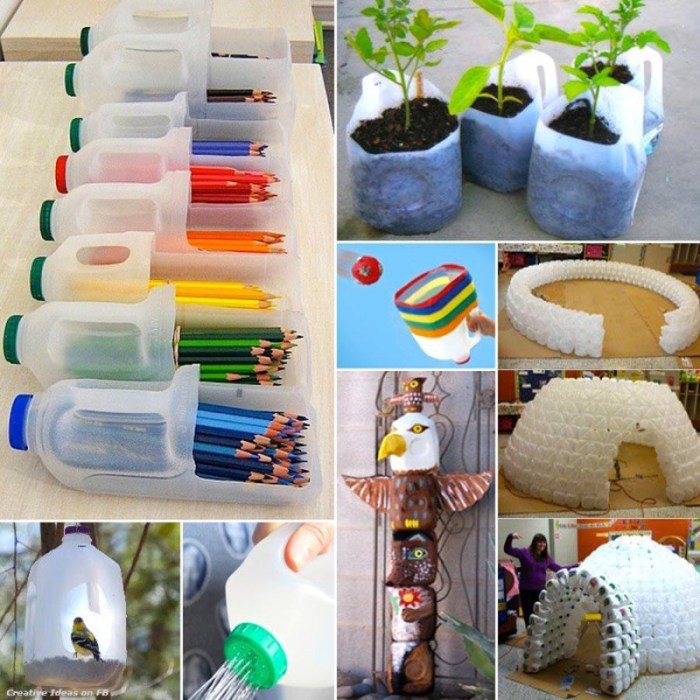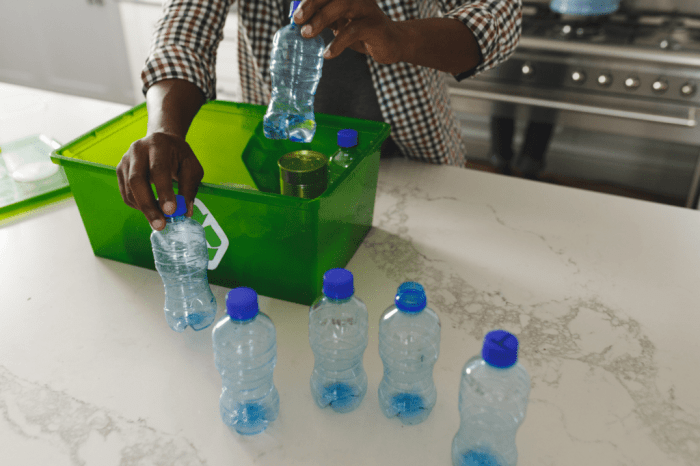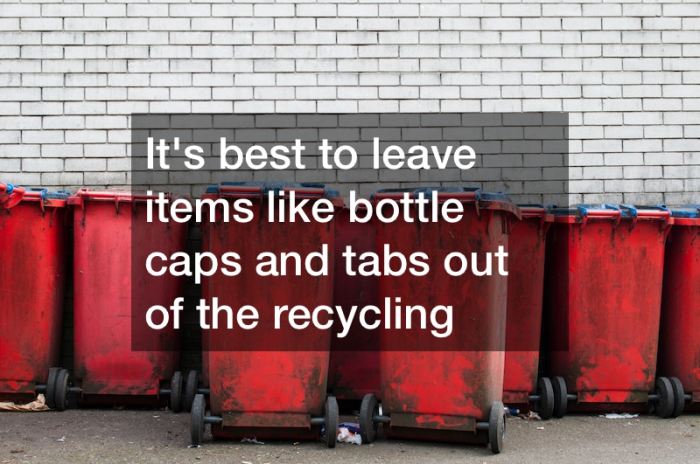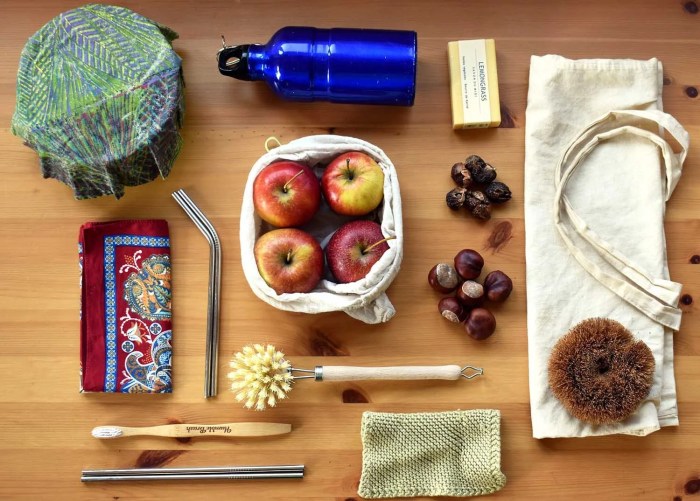Embark on a journey towards a more sustainable life with these 12 practical recycling tips. From reducing single-use plastics to creative ways of reusing items, this guide will inspire you to make a positive impact on the environment.
Learn how simple changes in your recycling habits can lead to a greener future for our planet.
Importance of Recycling

Recycling plays a crucial role in protecting our environment by reducing waste and conserving natural resources. By recycling, we can minimize the amount of waste sent to landfills and incinerators, ultimately decreasing pollution and greenhouse gas emissions.
Environmental Impact of Recycling
Recycling helps to reduce the need for extracting, refining, and processing raw materials. This, in turn, leads to lower energy consumption and fewer greenhouse gas emissions. By recycling materials like paper, glass, and plastics, we can save energy and prevent the destruction of natural habitats.
Statistics on the Benefits of Recycling
- According to the EPA, recycling one ton of paper can save 17 trees, 380 gallons of oil, 3 cubic yards of landfill space, and 4,000 kilowatts of energy.
- Recycling aluminum cans saves 95% of the energy needed to make new cans from raw materials.
- Recycling plastic can save up to 90% of the energy required to create new plastic from raw materials.
Conservation of Natural Resources
Recycling helps conserve natural resources by reducing the demand for virgin materials. By recycling metals, paper, glass, and plastics, we can preserve forests, reduce water consumption, and decrease the need for mining and drilling activities.
Household Recycling Tips

Setting up a recycling system at home is a great way to contribute to a more sustainable environment. By properly segregating recyclables and finding creative ways to reuse items before recycling, you can make a significant impact.
Segregating Recyclables
- Start by designating separate bins for different types of recyclables such as paper, plastic, glass, and metal.
- Rinse food containers before recycling to avoid contamination.
- Check with your local recycling facility for specific guidelines on what can and cannot be recycled in your area.
Creative Reuse Ideas
- Repurpose glass jars as storage containers for items like spices, nuts, or loose change.
- Use old clothing to create rags for cleaning instead of buying disposable wipes.
- Turn cardboard boxes into organizers for your home office or craft supplies.
Sustainable Living Practices

Living sustainably is essential for reducing our environmental impact and creating a healthier planet for future generations. One key aspect of sustainable living is adopting practices that aim to minimize waste and promote the efficient use of resources. By embracing zero waste living and reducing single-use plastics, we can make a significant difference in our ecological footprint.
Zero Waste Living
- Aim to reduce, reuse, and recycle as much as possible to minimize the amount of waste sent to landfills.
- Compost organic waste such as food scraps and yard trimmings to divert them from the waste stream.
- Avoid purchasing items with excessive packaging or opt for products with minimal or recyclable packaging.
- Embrace a minimalist lifestyle by decluttering and only acquiring items that serve a purpose.
Reducing Single-Use Plastics
- Carry a reusable water bottle, coffee cup, and shopping bags to reduce the consumption of single-use plastics.
- Choose products with minimal or no plastic packaging and opt for refillable or bulk options whenever possible.
- Avoid using plastic straws, utensils, and other disposable plastic items by opting for reusable alternatives.
- Support businesses and initiatives that promote plastic-free alternatives and sustainable practices.
Recycling in a Broader Sustainable Lifestyle
- Recycling is just one part of a broader sustainable lifestyle that includes reducing consumption, reusing items, and minimizing waste.
- By incorporating recycling into our daily habits, we contribute to a circular economy where materials are reused and repurposed instead of discarded.
- Recycling helps conserve natural resources, reduce energy consumption, and decrease greenhouse gas emissions associated with production processes.
- By prioritizing sustainability in all aspects of our lives, we can create a more resilient and environmentally conscious society.
Final Review

In conclusion, adopting these recycling tips is not just about waste management but also about embracing a sustainable lifestyle. By incorporating these practices into your daily routine, you are contributing to a healthier planet for future generations.